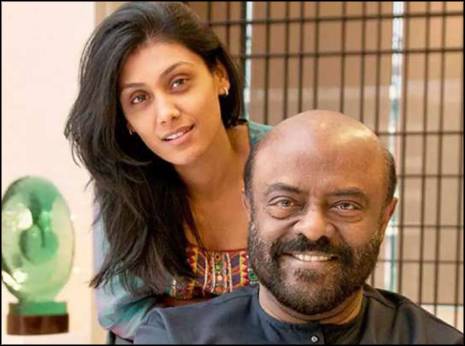
By Anand Parthasarathy
March 4, 2021:Sometimes, major turning points in the technology history of a company, go unnoticed, flying under the radar of media attention. Mid-February marked one such occurrence, as an iconic part of India’s infotech history faded away: Gibraltar Technologies (GT), an AI-based digital solutions company with offices in the Middle East, announced the “acquisition of HCL Infotech, part of the USD 10 billion IT giant HCL Group, for 74.6 million UAE dirhams (about Rs 147 crore).
HCL Infotech was the core of the original HCL earlier Hindustan Computers Ltd, founded in 1976 by 6 entrepreneurs – all of whom moved over from DCM Data Products, the infotech arm of Delhi Cloth Mills. They were the desi equivalent of a ‘garage start-up’, only their garage was a roof-top barsaati in Delhi. Leveraging their DCM experience, they began, addressing the market for electronic desk calculators, but soon transformed into pioneers and pathbreakers in indigenously designed and developed computer products.
---------------------------------------------------
Read the full article in Swarajya here
---------------------------------------------------
Interviewed for the book “Icons of Indian IT” (Anand Parthasarathy & S. Sadagopan; Wisdom Tree Publishers; 2018) HCL co-founder Ajai Chowdhry who took over as CEO in 1994 and Chairman of HCL Infosystems in 1999, recalls how the early, critical orders for the Micro 2200, were delivered: The first big order was for six units from IIT Madras.
“I still remember the date: it was 29 March 1977. Our boys in the factory worked round the clock to complete the assembly and testing. The six units had been shipped from Noida as Indian Airlines cargo. Like all government departments, IIT insisted that the delivery be made before the end of the financial year, 31 March, otherwise we would have defaulted on the contract. I parked myself in Chennai (then Madras) airport at Meenambakkam in a Fiat car, praying that the consignment would arrive by that day’s flight. It did— fortunately—and I personally collected the six boxes, strapped them inside the Fiat and drove to the IIT, which fortunately is quite close to the airport. We made the deadline with a day to spare.”
Following this, HCl launched its first commercial computer, the 8C, almost simultaneously with Apple in the United States and a three years before IBM. The 8C design was based on a shrewd understanding of Indian working environment – and frequent power cuts. It came with a Power Shut Auto Restart (PSAR) unit, connected to a battery and saved all the computations if power failed , to restore them when power came back
“I was fortunate to be one of the developers of HCL 8C”, says Rama Ayyar, today an IT consultant in Australia, in a blog for the IIT’ans Association of Australia, “Our small team of engineers, most of us from IIT Kanpur, developed HCL 8C right from scratch using indigenous components (except for the microprocessor and the memory chips). There was no one to mentor or guide us; we had to learn everything by trial and error and had to start from scratch.”
In other ways too, HCL exhibited a sixth sense for what would be the next leap in technology. When most computers came with 8-inch floppy drives, HCL switched to 5 ¼ - inch drives on a gut feeling: it turned out to be prescient. Recalled co-founder and former Vice Chairman, Arjun Malhotra: “In a small company, one wrong decision can kill the company. That’s how you play your cards if you feel that a particular technology can really change the future of the market." ( quoted in The Game Changers By Yuvnesh Modi, Rahul Kumar and Alok Kothari, Random House India, 2012)